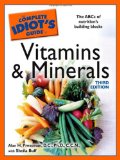|
Vitamin B12 is necessary for the formation of DNA and the myelin layer which surrounds the nerve cells. Vitamin B12 is also needed for cell division and the formation of red blood cells.
Vitamin B12: In-depth
Cobalamin is a term used to refer to compounds that contain cobalt and that have B12 activity. Vitamin B12 is needed for the formation of red blood cells and other cells of the body. It is a key component of nucleic acid (DNA) in the cell nucleus and myelin, the white matter coating the nerve fibres. Vitamin B12 is also needed for iron metabolism and the production of acetylcholine which is an important neurotransmitter.
Vitamin B12 is also important for the activation of folic acid. It helps to activate folic acid from its storage and transport form into a biologically effective form.
Vitamin B12 is the only water-soluble vitamin that can be stored in the liver and muscles for a longer period of time. Storage capacity: 3-5 mg. (Requirement for 3-5 years)
It is only certain micro-organisms that are capable of forming vitamin B12. These micro-organisms are part of the intestinal flora in animals which is why cobalamin is found in considerable amounts in animal foods. Consumed dietary vitamin B12 is bound to the gastrointestinal mucosa and absorbed in the small intestines. The human body's requirement of vitamin B12 is completely reliant on the dietary consumption of the nutrient even though small amounts of vitamin B12 are formed by the intestinal flora of the large intestine. However this does not meet the requirements needed by the body.
Vitamin B12: Requirement, deficiency, oversupply
Recommended intake of vitamin B12 according to the DGE* |
Age |
Men |
Women |
19 - 25 |
3.0 µg |
3.0 µg |
25 - 51 |
3.0 µg |
3.0 µg |
51 - 65 |
3.0 µg |
3.0 µg |
over 65 |
3.0 µg |
3.0 µg |
*Deutsche Gesellschaft für Ernährung - a German Nutrition Society
A vitamin B12 deficiency affects the formation of cells in the bone marrow which leads to anaemia. This type of anaemia results in the formation of large red blood cells and the degeneration of certain parts of the spinal marrow, which can lead to permanent damaging of the nervous system. Other symptoms include depression and memory loss.
There are hardly any deficiency symptoms as the liver and muscles have a storage capacity for the vitamin and are able to provide the body with vitamin B12 for many years.
The only people that really need to worry about not getting sufficient amount of vitamin B12 are those who are strict vegetarians or vegans (vegans do not eat meat or any animal products including milk and eggs). If meat is generally not consumed in the diet, it is recommended to meet requirements by eating eggs and drinking milk. A deficiency can also occur in older people who have chronic gastrointestinal mucous infections which can get worsened by an unhealthy diet.
Regardless of the fact that a part of the body's requirements are met with the help of the intestinal flora, vegans or vegetarians do not get a sufficient supply of vitamin B12. It is for this reason that the English Vegetarian Organisation has recommended the additional intake of a vitamin B12 supplement for all those on a strict vegetable and fruit based diet. Vitamin B12 is also very important for pregnant women in order to avoid irreversible birth defects.
There are no known adverse effects associated with large intakes of vitamin B12.
top  |
Vitamin B12 in food:
Vitamin B12 is only found in animal sources such as liver, meat, fish, eggs, cheese and milk. Plant foods contain very little, if any, amounts of vitamins B12. Some plants can have very small amounts of vitamin B12 if they live with micro-organisms that form cobalimin (e.g. rhizobia) and absorb the vitamin. Fermented plants foods such as beer and sauerkraut contain small amounts of vitamin B12 as fermentation takes places as a result of micro-organisms. However, the amount in plants is so small that it cannot really contribute to the overall human requirement of vitamin B12.
Vitamin B12 in 100 g food:
Pork liver: 40 µg
Pork: 2 µg
Beef liver: 67 µg
Beef: 4 µg
Herring: 8 µg
Trout: 5 µg
Chicken egg: 2 µg
Unskimmed milk: 0.4 µg
Cream cheese: 0.5 µg
Low fat curd cheese: 0.88 µg
Units: 1,000,000 µg = 1g
top 

The Complete Book of Food Counts, 9th Edition: The Book That Counts It All

Earl Mindell's New Vitamin Bible,
Earl Mindell, Hester Mundis

Prescription for Nutritional Healing, Fifth Edition: A Practical A-to-Z Reference to Drug-Free Remedies Using Vitamins, Minerals, Herbs & Food Supplements, Phyllis A. Balch CNC

The Complete Idiot's Guide to Vitamins and Minerals, 3rd Edition, Alan H. Pressman, Sheila Buff

What You Must Know about Vitamins, Minerals, Herbs, & More: Choosing the Nutrients That Are Right for You,
M.D. Pamela Wartian Smith
|

